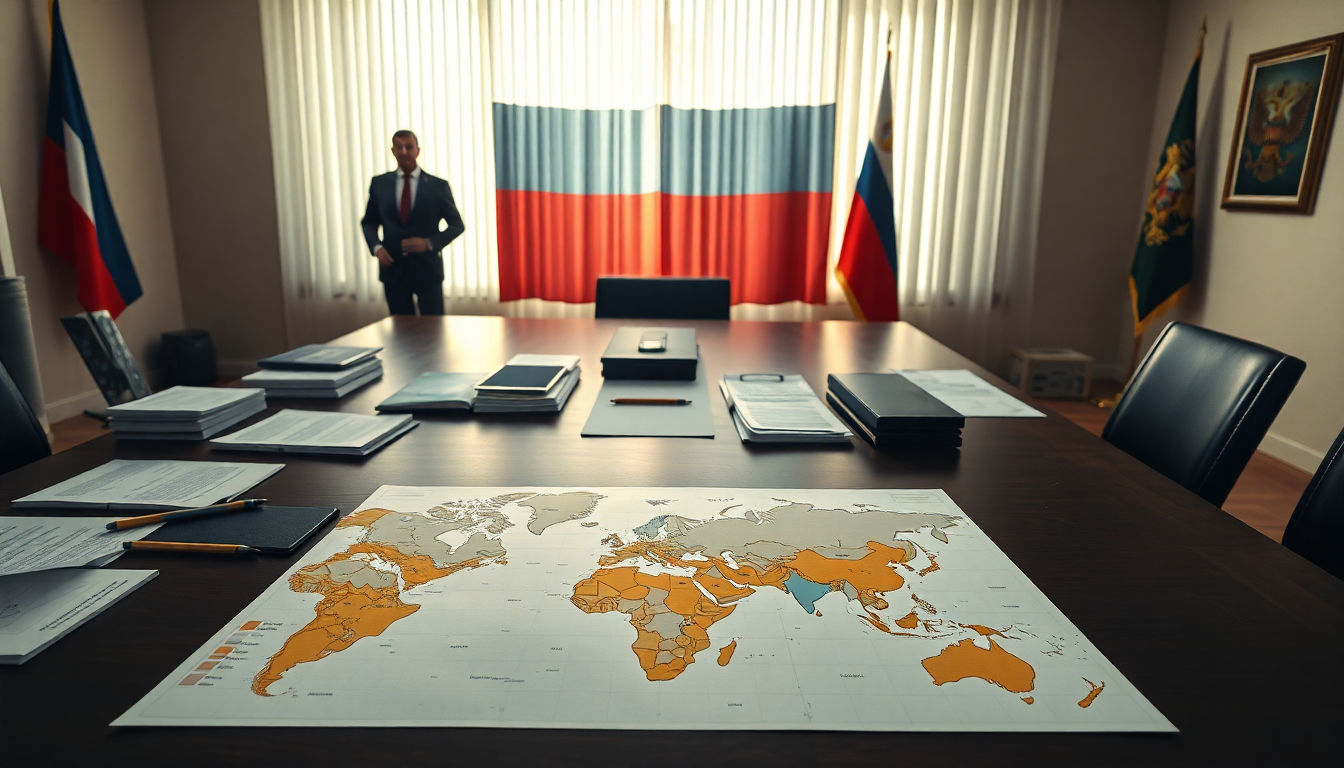Table of Contents
The Kremlin is sounding the alarm over some recent comments from US President Donald Trump, especially those about potentially sanctioning Russia’s trading partners. Given the rising tensions between the United States and Russia, it’s no surprise that the Kremlin is taking these words seriously. Spokesperson Dmitry Peskov has pointed out that the implications of Trump’s statements are significant, and careful consideration is needed before any response is crafted.
What’s Behind Trump’s Statements?
Trump’s remarks come against a backdrop of his commitment to supplying advanced weaponry to Ukraine, including the well-regarded Patriot missile systems, through NATO. This isn’t just a minor tweak in US policy; it marks a significant escalation in military involvement in the ongoing conflict. He even warned that countries purchasing Russian exports might face hefty tariffs if Russia doesn’t engage in peace talks by a certain deadline. Could this be a game-changer in international relations with Russia? The Kremlin certainly thinks so, prompting them to rethink their strategies.
Peskov emphasized how seriously the Kremlin is taking these developments, noting that some of Trump’s words seemed aimed directly at President Putin. This personal angle adds an extra layer of intensity to an already fraught discussion. The Kremlin’s decision to analyze these remarks carefully before responding highlights just how delicate the current geopolitical situation is.
How Are Russian Officials Reacting?
Former Russian President Dmitry Medvedev has labeled Trump’s announcement a “theatrical ultimatum,” suggesting a dismissive attitude that’s quite common among Russian officials. As the deputy chair of Russia’s Security Council, Medvedev’s opinions carry weight in interpreting the Kremlin’s views on international issues. His comments suggest that Russia might not be overly worried about Trump’s threats, viewing them as part of a larger narrative rather than a direct challenge.
Russian Senator Konstantin Kosachev shared similar sentiments on social media, arguing that Trump’s announcements won’t sway public opinion in Russia. He framed the situation as a trap set by the United States, where European nations would bear the financial burden of US arms sales, effectively benefiting the American military-industrial complex. This defensive stance shows how Russian officials are navigating the new challenges posed by US actions.
Global Reactions and European Responses
On the international front, reactions have been mixed. Some European nations are expressing support for the US stance. For example, Denmark’s Foreign Minister Lars Lokke Rasmussen has announced that Denmark will help finance the Patriot systems for Ukraine. This signals that European countries are coming together with the US in the face of Russian aggression, a sentiment echoed by Lithuania’s Foreign Minister Kestutis Budrys.
However, it’s worth noting that unity within the European Union regarding sanctions against Russia seems somewhat shaky. Slovakia has even requested a delay on voting for the planned sanctions package, which indicates that while there may be a collective desire to counter Russian actions, political complexities in individual nations could slow things down. EU foreign policy chief Kaja Kallas expressed disappointment at this setback but remains optimistic about eventually getting sanctions approved.
As the situation continues to evolve, the possibility of further sanctions and military support from the US remains a crucial point for both Russia and its European allies. The Kremlin’s careful analysis of Trump’s statements will undoubtedly shape its upcoming strategies and responses as the geopolitical landscape grows more intricate.


